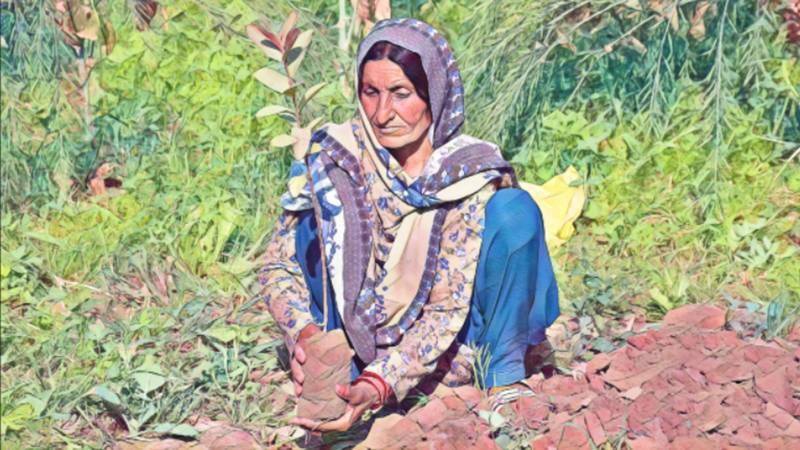
With the Chief Minister of Punjab, Maryam Nawaz initiating yet another ‘ambitious initiative’ for agricultural growth under the name of the “Assan Korobar” and “Ujala program”, there are several questions that boil in the pot of what we call Pakistan’s most fertile area: Punjab. With the schemes being as large as Rs 100 billion, there is only a sedated move to address the problems of climate change rampant within the country, hitting Punjab the most. While many look at the deprivation from the resource lens, there is a need to develop a discourse regarding the gender lens.
The feminisation of climate change has not been a major part of discussions within the power corridors. With gendered vulnerabilities on the rise within Punjab due to the sensitivity of climate variability, there is limited focus on how to firstly tackle the negative change and secondly to reduce its impact on the women of Punjab. Land ownership is where the debacle starts. Women in the agriculture sector first lack land ownership, mainly due to limited access to credit. The traditional gender roles limit their access to decision-making while putting them under the umbrella of unpaid work that mostly goes unnoticed. According to the Pakistan Bureau of Statistics, less than 2% of women own land within Punjab. This goes to show the lack of power women have within the agricultural sector. Due to the vacuum of women within this sector, the provision of loans and subsidies is also restricted. This reduces their chance to implement climate-resilient practices that could aid the environment and induce more fertility.
Though the flamboyant schemes announced by the government representatives may have a positive impact on the agricultural sector, they mostly increase the control a certain gender has on the policies and practices. With fewer women in the field, the poverty of decision-making has elongated the problem of the climate crisis as the power remains in the hands of the few.
Climate change and the negative impact it holds on women within Punjab shows the need for effective policy implementation that could aid women by reducing labour-intensive work through technological advancements
Moreover, resource management under the burden of depleting resources becomes crucial within the agriculture sector. Access to water and energy becomes strained under the effects of climate change and the repercussions have to be faced by the women in terms of fetching water and preparing biomass which is used for traditional cooking. These rudimentary methods are time-consuming and highly burdensome for a particular gender. Thus, progressive schemes that would promote newer methods of energy could greatly aid the efficiency of women in the agricultural field and allow them to provide expertise in other areas.
Climate change, thus, brings with it direct and indirect health effects that are gendered. The heatwaves could disproportionately affect women as most labour-intensive work is conducted by them. Another aspect is the lack of access to adequate healthcare. Thus, climate change and the negative impact it holds on women within Punjab shows the need for effective policy implementation that could aid women by reducing labour-intensive work through technological advancements. For many, the land holds lower value due to the adversities of climate change, and thus many men find the need to migrate. With more migration of rural men towards urban centers, the women are often displaced or left alone to bear the brunt of social and economic insecurities that stem from climate change.
As the government representatives move towards providing relief for the farmers, they must acknowledge the changing landscapes due to the changing climates. With floods and droughts becoming second nature to the land of Punjab, potent policy formation is required to address it. Grassroots intervention such as legal support for land ownership and training programs with effective technological intervention could significantly aid the agricultural sector. More than that in the heart of Punjab’s fertile field, where women show their agricultural prowess, the chains of inequality under the blanket of climate change have exacerbated the climate and gender-based crisis.

